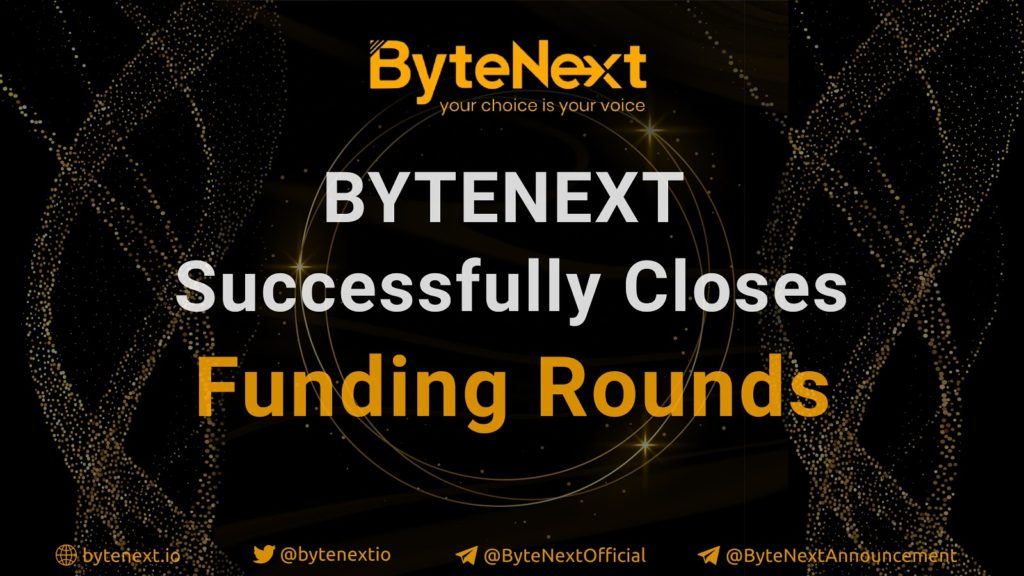2018-11-15 23:04 |
Blockchain technology is often tightly connected to Bitcoin and cryptocurrencies, in general. This is hardly surprising, considering that it was invented in order to serve as an underlying technology for digital currencies. However, over time, developers discovered that using blockchain for crypto is only scratching the surface of this technology, which has tremendous capabilities.
Soon enough, researchers started finding new use cases for it, and for a while, there were more questions than answers. People started wondering what possible uses is blockchain still hiding, what implementations does it have, what kind of regulations are needed in order to make things work, and more.
In time, these questions evolved, just like various protocols that were created in an attempt to provide at least some answers. Now, most of the new questions revolve around saving and making money, as well as the openness of crypto and blockchain. It is also important to note that making money does not necessarily have to include digital currencies.
As mentioned, while blockchain and crypto did come together, blockchain has managed to outgrow digital currencies already. Now, many view crypto as only one of the blockchain's many potential applications. Blockchain potential and openness are what a lot of people are still trying to understand.
Does Blockchain Technology Fit Your Needs?When it comes to various businesses, there are many that can benefit from implementing this technology. However, this is not necessarily true for absolutely all of them. In fact, there are times when blockchain is not necessary at all. One example of this is when you work in a space that doesn't depend on collaboration.
If your business has a single authoritative entity, all you need to do is get a database, secure it, and start pushing information to those that are supposed to receive it. While blockchain has numerous benefits, using it in a simple situation may make things more complex than they actually need to be.
On the other hand, businesses that are often communicating with others require a system that will provide easy and quick validations and insight into their collaborations. This is where blockchain can truly reach its full potential, and make things simpler and more organized. While this is a rather simplified way of presenting these and similar situations, the important part is to understand that blockchain is not necessary when it doesn't help.
Giving Blockchain a ChanceIf you are running a larger business where collaborations and contacts with others are unavoidable, then blockchain may be the best solution for you.
When it comes to the blockchain, most early adopters were actually smaller firms, which was surprising to analysts at the time. The technology was still new, untested, unregulated, so why are so many small businesses willing to risk it and implement it? The answer is rather simple — blockchain eliminated the middleman, as well as fees and additional costs that come with such services.
Large businesses, on the other hand, were hesitant when it comes to adopting this technology. They did not understand it properly, and the fact that there are no regulations in place was a serious risk for them. This approach also makes sense.
Large companies have a lot to consider when it comes to implementing new technology. This is a big move for everyone, but larger firms have more to lose if it turns out that they have made a bad call. The fear factor is an important one, especially when dealing with the unknown. Another big factor includes misconceptions and misunderstandings regarding new technologies.
Constant news of scams, identity thefts, and alike — especially in areas such as finances, social media, and new technologies — often provokes a negative reaction, and desire for full control. In such situations, the last thing that anyone wants or needs is to experiment with the unknown.
Finally, there is also the fact that blockchain is tightly connected to crypto, which was believed to be used only for criminal activities, dark web, the funding of terrorism, money laundering, and alike. Hackers with their use of cryptos in ransomware attacks did not help the situation either, and most suggestions to try blockchain during these times were quickly rejected.
Luckily, the situation has changed since then, and a lot more people and businesses are now ready to open up to this technology. Due to the fact that blockchain is transparent and open, this openness itself became one of the biggest topics of discussion regarding blockchain technology.
Many believe that transparency means the lack of security and that only chaos can emerge from it. In practice, the opposite has occurred.
How Can Openness Help Businesses?Openness has been a concept that the world has been striving towards for a long time. Open source is likely one of the easiest factors of openness to understand and accept. For quite some time now, working together on creating something new and better has been one of the primary goals of technological advancement.
This is exactly what open source is about — sharing with other people and businesses from all over the world. Sharing how things are created, how they work, how they are verified, processed, and kept. On blockchain, this concept goes a step further, as it is a perfect method for sharing data, while at the same time, ensuring that it is true.
While many believe that this way of sharing data is the future, the fact is that it is already happening, to an extent. In this day and age, most of the new data is coming to us in real time, or at least in near real time. By using the internet for various searches and for exploring things that we are interested in, we are feeding advertisers data about what we want to know more about.
Pretty much everything we do while online is being tracked, recorded, processed, and “used against” us. Every Google search that we make is valuable data to someone, only we have no idea that this data is collected and studied in order for us to receive more precise ads.
With blockchain technology, there is a little thing called identity management, which allows us to control what data we are producing, as well as where it is being shared at. At the same time, we can make a profit by communicating directly with companies making certain products, without the need for an actual third party that would handle the ads.
How Will Openness Work With the Competition?This is likely the biggest issue that companies have with openness since they believe that their competitors will read all of their moves like an open book. But, how does this work in reality?
Of course, openness doesn't mean that you will put all of the sensitive data regarding your business out in the open. Instead, it really comes down to making pointers for large businesses in the same space, determining what problems need to be solved, and what needs to be properly controlled. There are already numerous examples of blockchain solving real-world problems in a record amount of time.
When all necessary information is out in the open, researching an issue can be reduced from days to seconds, which is where the true power of blockchain lies. Finally, the best part is that all of this can be achieved even today. There is no need to wait for an unspecified amount of time for this technology to mature — it is here already. The problem is the lack of trust in it and the lack of understanding of it. This is the tech that can change the world, and provide solutions to a lot of problems that we are still facing, but only if we know enough about it in order to actually give it a chance.
origin »Bitcoin price in Telegram @btc_price_every_hour
Advanced Technology Coin (ARC) на Currencies.ru
|
|



















